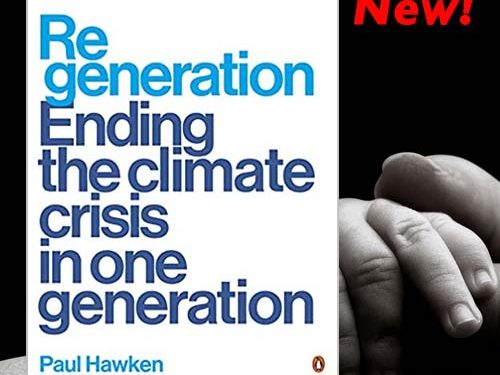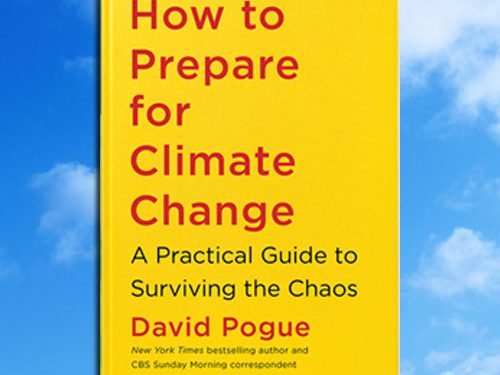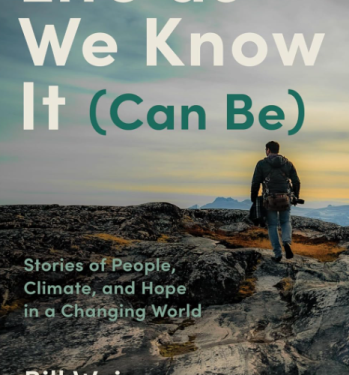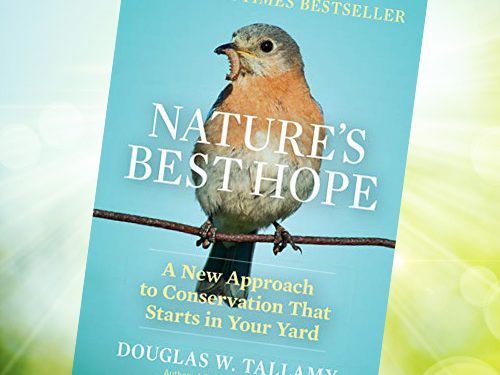-
 A radically new understanding of and practical approach to climate change by noted environmentalist Paul Hawken, creator of the New York Times bestseller Drawdown Regeneration offers a visionary new approach to climate change, one that weaves justice, climate, biodiversity, equity, and human dignity into a seamless tapestry of action, policy, and transformation that can end the climate crisis in one generation. It is the first book to describe and define the burgeoning regeneration movement spreading rapidly throughout the world. Regeneration describes how an inclusive movement can engage the majority of humanity to save the world from the threat of global warming, with climate solutions that directly serve our children, the poor, and the excluded. This means we must address current human needs, not future existential threats, real as they are, with initiatives that include but go well beyond solar, electric vehicles, and tree planting to include such solutions as the fifteen-minute city, bioregions, azolla fern, food localization, fire ecology, decommodification, forests as farms, and the number one solution for the world: electrifying everything. Paul Hawken and the nonprofit Regeneration Organization are launching a series of initiatives to accompany the book, including a streaming video series, curriculum, podcasts, teaching videos, and climate action software. Regeneration is the inspiring and necessary guide to inform the rapidly spreading climate movement.
A radically new understanding of and practical approach to climate change by noted environmentalist Paul Hawken, creator of the New York Times bestseller Drawdown Regeneration offers a visionary new approach to climate change, one that weaves justice, climate, biodiversity, equity, and human dignity into a seamless tapestry of action, policy, and transformation that can end the climate crisis in one generation. It is the first book to describe and define the burgeoning regeneration movement spreading rapidly throughout the world. Regeneration describes how an inclusive movement can engage the majority of humanity to save the world from the threat of global warming, with climate solutions that directly serve our children, the poor, and the excluded. This means we must address current human needs, not future existential threats, real as they are, with initiatives that include but go well beyond solar, electric vehicles, and tree planting to include such solutions as the fifteen-minute city, bioregions, azolla fern, food localization, fire ecology, decommodification, forests as farms, and the number one solution for the world: electrifying everything. Paul Hawken and the nonprofit Regeneration Organization are launching a series of initiatives to accompany the book, including a streaming video series, curriculum, podcasts, teaching videos, and climate action software. Regeneration is the inspiring and necessary guide to inform the rapidly spreading climate movement. -
 A practical and comprehensive guide to surviving the greatest disaster of our time, from New York Times bestselling self-help author and beloved CBS Sunday Morning science and technology correspondent David Pogue. You might not realize it, but we’re already living through the beginnings of climate chaos. In Arizona, laborers now start their day at 3 a.m. because it’s too hot to work past noon. Chinese investors are snapping up real estate in Canada. Millennials have evacuation plans. Moguls are building bunkers. Retirees in Miami are moving inland. In How to Prepare for Climate Change, bestselling self-help author David Pogue offers sensible, deeply researched advice for how the rest of us should start to ready ourselves for the years ahead. Pogue walks readers through what to grow, what to eat, how to build, how to insure, where to invest, how to prepare your children and pets, and even where to consider relocating when the time comes. (Two areas of the country, in particular, have the requisite cool temperatures, good hospitals, reliable access to water, and resilient infrastructure to serve as climate havens in the years ahead.) He also provides wise tips for managing your anxiety, as well as action plans for riding out every climate catastrophe, from superstorms and wildfires to ticks and epidemics. Timely and enlightening, How to Prepare for Climate Change is an indispensable guide for anyone who read The Uninhabitable Earth or The Sixth Extinction and wants to know how to make smart choices for the upheaval ahead.
A practical and comprehensive guide to surviving the greatest disaster of our time, from New York Times bestselling self-help author and beloved CBS Sunday Morning science and technology correspondent David Pogue. You might not realize it, but we’re already living through the beginnings of climate chaos. In Arizona, laborers now start their day at 3 a.m. because it’s too hot to work past noon. Chinese investors are snapping up real estate in Canada. Millennials have evacuation plans. Moguls are building bunkers. Retirees in Miami are moving inland. In How to Prepare for Climate Change, bestselling self-help author David Pogue offers sensible, deeply researched advice for how the rest of us should start to ready ourselves for the years ahead. Pogue walks readers through what to grow, what to eat, how to build, how to insure, where to invest, how to prepare your children and pets, and even where to consider relocating when the time comes. (Two areas of the country, in particular, have the requisite cool temperatures, good hospitals, reliable access to water, and resilient infrastructure to serve as climate havens in the years ahead.) He also provides wise tips for managing your anxiety, as well as action plans for riding out every climate catastrophe, from superstorms and wildfires to ticks and epidemics. Timely and enlightening, How to Prepare for Climate Change is an indispensable guide for anyone who read The Uninhabitable Earth or The Sixth Extinction and wants to know how to make smart choices for the upheaval ahead. -
 Award-winning journalist and CNN chief climate correspondent Bill Weir draws on his years of immersive travel and reporting to share the best ideas and stories of hope and positivity from the people and communities around the world who are thriving in the wake of climate change, and what we can learn from them to build a more promising future.
Award-winning journalist and CNN chief climate correspondent Bill Weir draws on his years of immersive travel and reporting to share the best ideas and stories of hope and positivity from the people and communities around the world who are thriving in the wake of climate change, and what we can learn from them to build a more promising future. -
 In this new book, Douglas W. Tallamy takes the next step and outlines his vision for a grassroots approach to conservation. Nature’s Best Hope shows how homeowners everywhere can turn their yards into conservation corridors that provide wildlife habitats. Because this approach relies on the initiatives of private individuals, it is immune from the whims of government policy. Even more important, it’s practical, effective, and easy — you will walk away with specific suggestions you can incorporate into your own yard. If you’re concerned about doing something good for the environment, Nature’s Best Hope is the blueprint you need. By acting now, you can help preserve our precious wildlife — and the planet — for future generations.
In this new book, Douglas W. Tallamy takes the next step and outlines his vision for a grassroots approach to conservation. Nature’s Best Hope shows how homeowners everywhere can turn their yards into conservation corridors that provide wildlife habitats. Because this approach relies on the initiatives of private individuals, it is immune from the whims of government policy. Even more important, it’s practical, effective, and easy — you will walk away with specific suggestions you can incorporate into your own yard. If you’re concerned about doing something good for the environment, Nature’s Best Hope is the blueprint you need. By acting now, you can help preserve our precious wildlife — and the planet — for future generations.

